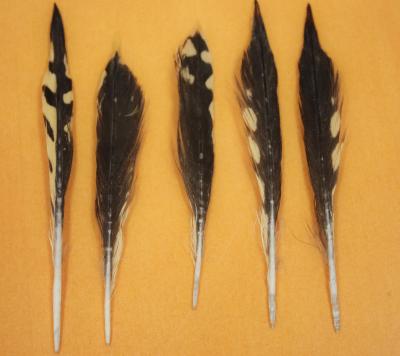Baby sharks are eating songbirds, scientists discover
‘None of them were seagulls, pelicans, cormorants, or any kind of marine bird. They were all terrestrial birds – the kinds that might live in your backyard’
Your support helps us to tell the story
From reproductive rights to climate change to Big Tech, The Independent is on the ground when the story is developing. Whether it's investigating the financials of Elon Musk's pro-Trump PAC or producing our latest documentary, 'The A Word', which shines a light on the American women fighting for reproductive rights, we know how important it is to parse out the facts from the messaging.
At such a critical moment in US history, we need reporters on the ground. Your donation allows us to keep sending journalists to speak to both sides of the story.
The Independent is trusted by Americans across the entire political spectrum. And unlike many other quality news outlets, we choose not to lock Americans out of our reporting and analysis with paywalls. We believe quality journalism should be available to everyone, paid for by those who can afford it.
Your support makes all the difference.Baby tiger sharks are feeding on familiar songbirds like sparrows and woodpeckers, scientists have discovered.
Known as “garbage cans of the sea” the creatures eat almost anything from dolphins to sea turtles to rubber tyres. However, before these top predators reach their adult size of 15 feet they have a much more unusual diet of songbirds that primarily live on land.
“Tiger sharks will see an easy meal and snatch it up, but I was surprised to learn that the sharks were eating songbirds – I assumed that they’d be seabirds,” said Kevin Feldheim, a researcher at Chicago’s Field Museum and a co-author of the study, published in the journal Ecology.
Researchers found these tiger sharks were scavenging on songbirds struggling to make the vast migration over the Gulf of Mexico. Annually, 2 million birds use this migration corridor to reach spring breeding grounds in North America.
“The tiger sharks scavenge on songbirds that have trouble flying over the ocean,” said Dr Feldheim. ”During migration, they’re already worn out, and then they get tired or fall into the ocean during a storm.”

Terrestrial birds probably make easier prey than seabirds because they cannot handle themselves as well on water.
Researchers, led by Marcus Drymon from Mississippi State University, looked at juvenile tiger sharks’ diets by wrestling the three-foot-long predators onto a boat. They then pumped the sharks’ stomachs and analysed a sample of the contents before releasing them, unharmed.
Out of 105 sharks studied, 41 had bird remains in their stomachs, the researchers found.
Since the birds were partially digested, it was hard for the scientists to tell exactly what kinds of birds they were using sight alone. However, they sent the remains to a lab for DNA analysis.
“None of them were seagulls, pelicans, cormorants, or any kind of marine bird. They were all terrestrial birds – the kinds that might live in your backyard,” said Dr Drymon.
This isn’t the first time tiger sharks have been known to eat birds.
“There’s a site off Hawaii where baby albatrosses learn to fly, and adult tiger sharks pick them off,” said Dr Feldheim.
However this is the first time evidence has shown tiger sharks eat songbirds that live on land. Researchers hope it will help protect them in the future.
“All sharks are in trouble. We don’t know the extent of how industrialised fishing has taken a toll, but the vast majority of top predator populations have declined in recent years,” said Dr Feldheim. “It shows us how much more we can still learn about sharks in general and what DNA can tell us that observation can’t,” he said.

Join our commenting forum
Join thought-provoking conversations, follow other Independent readers and see their replies
Comments